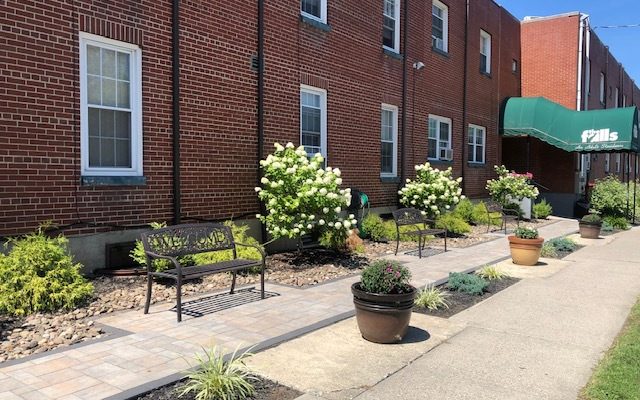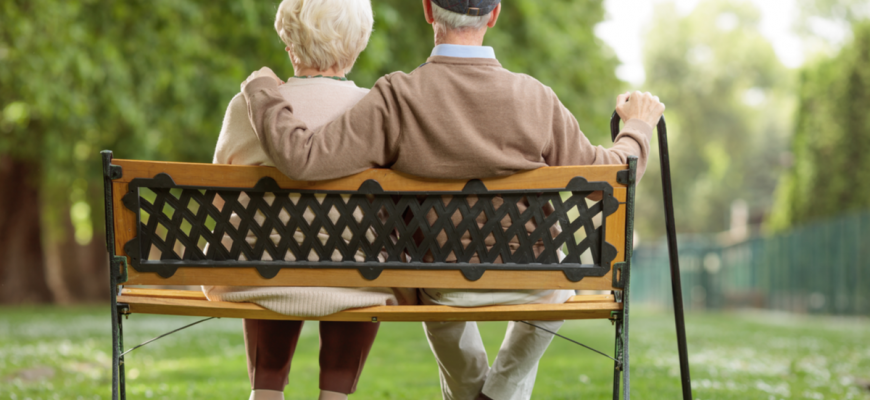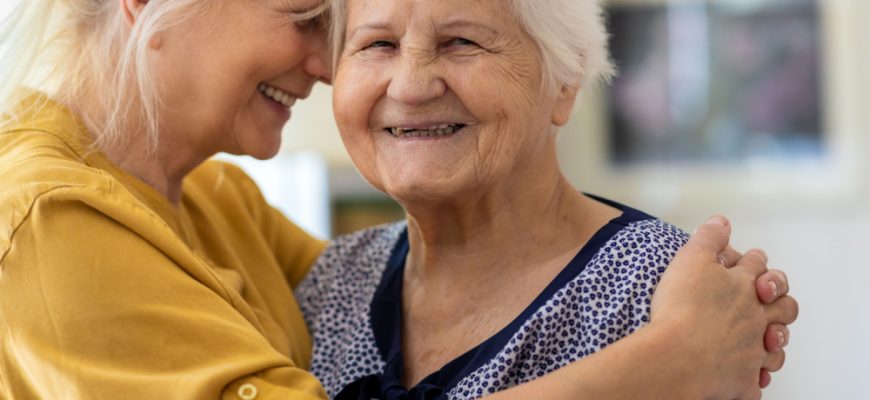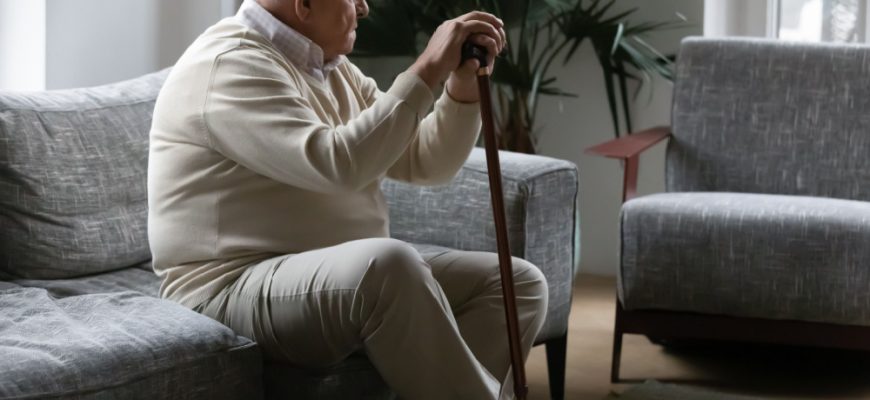Tag Archives: senior care

The Importance Of Getting A Dementia Diagnosis
It is possible that you’ve had memory issues or other symptoms for a while. Your issues likely emerged over a long period of time, making them more difficult to identify. It may seem like your symptoms aren’t severe enough; yet if you’ve only lately been aware of changes. However, it can be crucial to receive a dementia diagnosis early on. Dementia care experts in our senior care facility share the importance of getting a dementia diagnosis. Benefits Of Dementia Diagnosis Being diagnosed with dementia at an early stage allows you to make adjustments and get the things you require, such as: Access To Assistance: The diseases that cause dementia are still incurable. However, there are many resources available to support you in living as well as you can. You can learn what kind of dementia you have after the diagnosis process. Additionally, it can assist you in accessing therapies and support networks as well as future planning (such as establishing a power of attorney). Moreover, this can imply that you have access to medications that can help you control your symptoms. Information That Will Make Your Situation More Understandable To Others: Your mood and behavior can alter as a result of dementia. A diagnosis might help people understand why you have been acting differently, feeling down, or getting annoyed easily. They might be able to help you more effectively. The Provision Of Benefits And Protections: If you have been diagnosed with dementia, you are legally protected against discrimination (unfair treatment) […]
Read More
Understanding Home Care Services
Seniors may require home care services at some time in their lives. In fact, the majority of seniors will tell that they would want to remain at home for as long as possible. They can accomplish this through the use of a home care provider, either with the help of a close friend or a compassionate expert. Finding home care can include letting a stranger into your house, which can be a scary thought. The hesitation you experience will be replaced with gratitude because the advantages they offer far surpass any drawbacks. What Is Home Care? Working with a stranger is frequently a requirement of home care services, but don’t worry—home care experts have the best training in the medical field and are licensed. There might also be a nurse on hand, depending on the kind of home care you get. Family members can also offer home care, but if they lack the necessary training, their capabilities may be limited. A home care professional may assist you with running errands, cooking meals, reminding you to take your medicines, and even being a companion. Some healthcare professionals can assist you in taking care of wounds and severe injuries while also offering palliative care. Different Types Of Home Care Services There are three primary categories of home care services. These are: Personal Care And Companionship Usually, a nurse is not needed to help with this kind of home care. These in-home carers will typically help you with routine duties like meal preparation, […]
Read More
Can Seniors Stop Paying Credit Cards And Debts?
A study by The Senior Citizens League found that seniors owe money on their credit cards in 43% of older homes. So can they stop paying bills? Find out how to protect your elderly parents from debt, no matter if they live alone or in an assisted living facility, and how to help them manage their credit card debt. Why Old Debts Shouldn’t Worry Seniors? As a senior, you shouldn’t worry about credit card debt. Most older people get their income from Social Security, retirement benefits, or other funds that cannot be taken away. Debt collectors cannot seize these funds. Just because it’s judgment free doesn’t mean debt collectors will automatically forgive your debts. Often, family members would take advantage of elderly people by using their credit cards to pay off their family member’s debt. It is important for older people to discuss their debts with their families before getting a cosigner or making other similar plans. After all, the senior will have to pay the bill. Ways To Manage Debt: How Can Older People Get Out Of It? Here are some ways for older people to pay down their credit card bills: Balance Transfer Credit Card: With this card, you can consolidate all of your debt into one account and make one monthly payment. Payment Of Debt: Outside assistance is often helpful. A debt broker can talk to creditors about a payment amount that everyone agrees on. The senior might then pay the bill. Loan Terms: You don’t have […]
Read More
Living In Assisted Living Facility: Methods For Increasing Appetite In The Elderly
Assisted Living Facility, Methods for Increasing Appetite It is crucial to keep trying to get the elderly residing at assisted living facility to eat even if they don’t want to. Elderly folks can boost their appetite in several ways. In this article, we’ll examine the causes of elderly people losing their appetites, natural appetite stimulants, and ways of doing so recommended by geriatric experts. Causes Of Appetite Loss In The Elderly Gum illness Thyroid conditions Throat and mouth infections Parkinson’s and Alzheimer’ disease Cancer Issues with the salivary glands Medication adverse symptoms, like a metallic aftertaste or dry mouth Inadequate exercise Dehydration Lack of a mealtime schedule on a daily basis Taste loss brought on by aging Issues with swallowing, chewing, or independently eating Sensitivity to certain food scents that can make you feel sick General sense of being powerless over one’s life Depression and loneliness Overall negative emotions throughout mealtimes We shall discuss how to boost the appetite in the elderly in the next two sections. Foods For Older People Who Don’t Like To Eat Finding foods to satisfy an elderly person’s appetite can be a straightforward treatment for loss of appetite. Several foods are: Chicken nuggets, fish sticks, steaming or raw veggies, and meatballs are examples of finger foods. String cheese or cheese sticks Full-fat or calcium-rich yogurt Lean proteins such as lentils, beans, and peas Sliced thinly or ground meat Whole milk or milk with chocolate Chopped fruit Crackers with cheese or peanut butter Healthy smoothies or […]
Read More
Understanding ADL And IADL For Seniors: A Key To Promote Their Well-Being
As your loved ones age, they may encounter a variety of physical and cognitive changes that can impact their ability to carry out everyday tasks independently. Activities of Daily Living (ADL) and Instrumental Activities of Daily Living (IADL) are two categories of everyday activities that are critical for seniors’ health and well-being. What Are ADL And IADL? ADL is a term that refers to basic activities that individuals carry out every day. These activities are critical for maintaining hygiene, health, and independence. In contrast, IADL refers to activities that are necessary for more complex daily living tasks, such as grocery shopping, managing finances, using transportation, and doing housework. ADL Checklist For Seniors You can use this ADL checklist for seniors to determine if your loved ones need assistance in any of these areas. A few examples of tasks to include are: Bathing: Can your loved one bathe or shower independently, or do they need assistance? Dressing: Can they dress themselves, or do they need help putting on clothes or shoes? Grooming: Can they brush their teeth, comb their hair, and take care of their personal hygiene independently? Toileting: Can they use the toilet, or do they need assistance with incontinence or toileting aids? Eating: Can they prepare their own meals, or do they need assistance with feeding or special utensils? Transferring: Can they move from one place to another, or do they need assistance with a wheelchair, walker, or other mobility aids? IADL Checklist For Seniors Managing Finances: Can they […]
Read More
Caregiving Basics For Family Caregivers
Statistics show that many US citizens coping with illnesses, disabilities, and chronic conditions depend on family members, neighbors, or friends to get by. Caregiving is an important part of our lives and a recent study reveals that an estimated thirty-four million people have served as unpaid caregivers in the last year. Among many other things, family caregivers should learn to manage medications, talk to healthcare providers on their behalf, help them bathe or get dressed and take care of household tasks, meal preparation, finances, and more. As a senior care facility, we share a guide to help you prepare for managing the daily activities of a senior who is unable to care for himself or herself. Professional Vs. Family Care When faced with the duty of caring for someone else, your initial thought can be, “I’ll handle it myself.” However, going the DIY route has a number of personal sacrifices and financial dangers, like missed payments if you completely leave the workforce as well as reduced pension and Social Security benefits. But, you might not be in a situation to opt for professional caregiving as it can be extremely expensive. Are You Prepared To Provide Care? Nobody will blame you if you’re not ready to be a caretaker since the majority of Americans aren’t. Many people are unpreparedly put into this duty, which leaves them feeling overwhelmed. It pays to consider your alternatives for providing care and make plans for possible scenarios. If you are thinking about working as a […]
Read More
Healthy Eating Tips To Overcome Challenges Of Dementia
If your senior loved one is suffering from dementia disorders, you should be concerned about the nutritional intake of the person. This is because getting proper nutrition is very much important to maintaining proper health. Also, a deficiency of nutrients can lead to fatigue and other symptoms that can impact the overall health and well being of your senior loved one. But, people suffering from dementia disorders can face challenges with eating, such as difficulty swallowing, which can make it harder for caregivers to ensure proper intake of nutrients. Dehydration is one of the biggest issues faced by people suffering from dementia disorders. In the opinion of dementia care experts, people suffering from Alzheimer’s and other dementia disorders might not be able to recognize that they are thirsty, or may simply forget to drink water. This can result in dehydration which can lead to headaches, confusion and other issues like urinary tract infection, constipation, etc, which can worsen the symptoms of dementia disorders. Therefore, it is important to ensure that your senior loved one can easily access water whenever needed. It is also a good idea to keep a pitcher of water neat to their chair or bed. Another common concern for seniors suffering from dementia disorders is the loss of weight. Alzheimer’s care experts opine that the following dementia-related challenges and symptoms can contribute to the loss of weight. Difficulty understanding that they are hungry Lack of appetite Fatigue Difficulty in preparing meals Reduced […]
Read More
In-Home Safety Tips For Dementia Patients
If your senior loved one is suffering from dementia disorder, in-home safety should be of top priority, whether the person lives alone, with other family members or with a caregiver. The first thing to ensure safety is to verify that the person knows what to do in case of an emergency. If they are unsure of what to do, you will have to develop a plan together, including an escape plan that your senior loved one can easily navigate. In addition, ensure that all fire and smoke alarms and carbon monoxide detectors are working properly and have new batteries. Make clear and easily readable guides with basic steps and emergency numbers and post them in readily visible areas, including near phones. However, there are many other precautions beyond emergency planning that can ensure the safety of your senior loved one. Experts in dementia care and senior care share some precautions to improve the safety of the home. Remove Potentially Dangerous Things You need to remove all potentially dangerous machines, tools and utensils to ensure the safety of your senior loved one suffering from dementia disorders. Some of the possible objects to secure are guns and ammunition, sharp objects like knives and blades, and even kitchen appliances. Make sure to carefully monitor the ability of your senior loved one to use these items. Monitor Alcohol And Medication Use Most people suffering from dementia disorders will be able to manage simple medication regimens in the starting stages of the disease. As dementia […]
Read More
The Different Stages Of Alzheimer’s Disease
Alzheimer’s is a progressive disease that develops slowly and gradually worsens. In the opinion of senior care experts, the disease usually develops over a period of many years, impacting memory, language, problem-solving, thinking, and even the personality of the sufferer. Though not every person suffering from Alzheimer’s will experience the same disease progression rate, there is a similar path that patients follow with the progress of the disease. Senior care experts in our assisted living facility share the different stages of dementia progression. Before Diagnosis: No Dementia In the seven-stage model of dementia progression, a person is not considered to have dementia in the first three stages, as the symptoms will be usually associated with that of typical aging and will not be noticeable. Senior care experts also call this pre-clinical Alzheimer’s disease. First Stage: No Impairment In stage one, the person will not have any memory impairment or any evident dementia symptoms. In the first stage of the disease, Alzheimer’s will be undetectable and the stage is sometimes referred to as No Cognitive Decline. Second Stage: Very Mild Cognitive Decline In the second stage, the person will start to experience forgetfulness. They may forget where they left their purse or keys and the symptoms might not be noticed by the healthcare provider or family member of the person. Third Stage: Mild Cognitive Decline The person will experience increased forgetfulness and slight difficulty with concentration. The symptoms at this stage of the disease can lead to reduced work performance for […]
Read More
Understanding The Warning Signs Of TIA And Taking The Necessary Actions
A transient ischemic attack (TIA) is a variant of stroke. Senior health experts say that TIA is sometimes referred to as mini-stroke as it can lead to stroke-like symptoms. Some transient ischemic attacks can last only a few minutes and some can last for a few hours. Usually, when a person experiences TIA, their stroke symptoms can go away after some time. Types Of Stroke Ischemic and hemorrhagic strokes are two different types of strokes. A hemorrhagic stroke is caused by the bursting of a weak blood vessel in the brain. On the other hand, clots of blood blocking the arteries supplying blood to the brain can lead to an ischemic stroke. TIAs are a type of ischemic stroke. As ischemic strokes and TIAs have similar causes, their symptoms can also be similar. The duration and damage caused are what make a transient ischemic attack different. A TIA can last for a few hours or for a few minutes and usually does not have any lasting effects on the person, whereas an ischemic stroke lasts longer and can lead to permanent damage to the brain of the sufferer. It is very important to understand and recognize the signs and symptoms of a TIA or a stroke on time and take necessary actions. As per senior living experts, a TIA is a serious medical event. If the stroke is a transient ischemic attack and resolves, your loved one may be at an increased risk of a more severe attack. Therefore, if […]
Read More